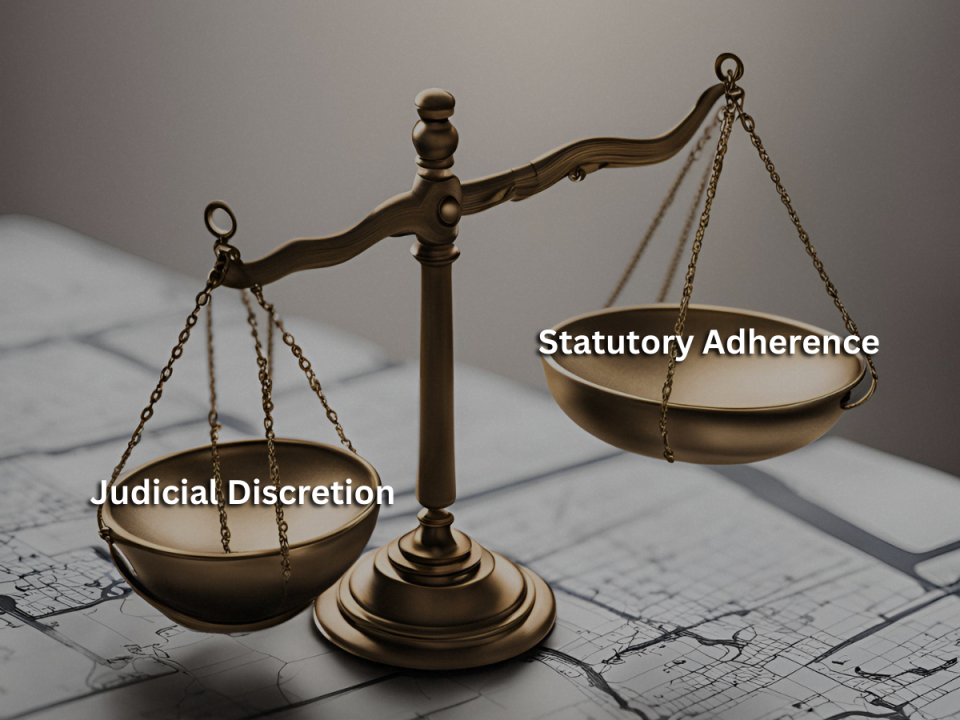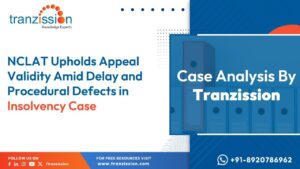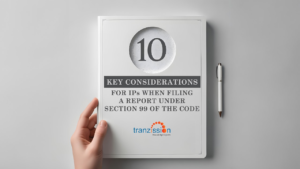
Prior Approval vs. Post Facto Approval: Equating ‘Leave of Court’ with ‘Prior Approval’ Undermines Legal Consequences

Table of Contents
The National Company Law Appellate Tribunal (NCLAT) recently delivered a judgment concerning the application of Section 33(5) of the Insolvency and Bankruptcy Code, which mandates prior approval from the Adjudicating Authority for any legal proceedings initiated by a liquidator post-liquidation. This case, involving RMOL Engineering and Offshore Ltd., Company Appeal (AT) (Insolvency) No. 690 of 2024 delivered on 31st May, 2024, provides an insight into the balance between strict statutory compliance and the practical objectives of insolvency proceedings. While the decision provides a robust framework for interpreting procedural requirements in insolvency proceedings, it also raises pertinent questions about the balance between statutory adherence and practical exigencies.
Context and Background
The case revolves around the actions taken by Mr. Jigar Bhatt, the liquidator for RMOL Engineering and Offshore Ltd., who initiated Section 7 proceedings against various appellant companies without obtaining prior approval as required by Section 33(5) of the IBC. This provision mandates that any legal proceedings initiated by a liquidator, on behalf of a corporate debtor post-liquidation, must have prior approval from the Adjudicating Authority.
Legal Issue
The central legal issue, in this case, was whether the failure of the liquidator to obtain prior approval invalidated the Section 7 applications filed against the appellant companies and whether post facto approval could rectify this procedural lapse.
Key Issues Addressed
1. Mandatory vs. Directory Nature of Section 33(5)
The central issue in the case was whether the “prior approval” requirement under Section 33(5) is mandatory, making any action taken without it null and void. The court delved into the statutory language and relevant legal precedents to determine the nature of this requirement. It acknowledged that while prohibitive language in legal texts generally indicates a mandatory directive. The Court did not hold the provision to be directory because it realized that in the event it holds it directory, the Liquidator will be free to initiate proceedings against any entity without obtaining prior approval of the Adjudicating Authority, which is not the intendment of the provision of Section 33(5). The mere fact that no consequences has been provided in the provision, cannot be a ground to treat the requirement as directory.
2. Validity of Actions Taken Without Prior Approval and Implications of Ex-Post Facto Approval
The legitimacy of the actions taken by the liquidator without the mandated prior approval was under scrutiny. The court considered various precedents where it was laid down that if the proceedings are initiated without leave of the Court, the proceeding shall be unauthorized. However, it shall become competent from the date when the leave is granted. In other words, the institution of the proceeding shall not be void or nullity when it has been filed without leave of the Court. Though the judgment pertained to the Companies Act, where the words “without the leave of the court” were used, the NCLAT held that the expression ‘leave of the Court’ and ‘prior approval’ denotes same meaning i.e. leave of the Court/ prior approval before any proceeding is instituted by the Liquidator.
The Court held that the proceedings instituted by the Liquidator on behalf of the Corporate Debtor without prior approval of the Adjudicating Authority under Section 33(5) are unauthorized and incompetent. However, post facto approval granted by the Adjudicating Authority to the proceedings already instituted by the Liquidator without obtaining prior approval shall make the proceedings authorized and competent from the date when post facto approval is granted.
Critical Evaluation of NCLAT Decision
1. Balancing Legal Rigor with Practical Needs
The decision to grant retroactive approval for actions taken without prior approval under Section 33(5) of the IBC demonstrates a flexible approach. While this flexibility facilitates the practical management of insolvency proceedings, it establishes a potentially risky precedent where procedural lapses might be routinely forgiven. Such a stance undermines the reliability and authority of statutory mandates, potentially rendering the insolvency process less predictable and more arbitrary.
2. Leave of Court and Prior Approval are Two Different Concepts
The judgment correctly asserts that for the liquidator, Section 33(5) of the Insolvency and Bankruptcy Code imposes mandatory obligations, despite the absence of specified legal repercussions. It conflated the concepts of ‘leave of the court’ and ‘prior approval’ and concluded, citing legal precedents, that retroactive approval by the Adjudicating Authority would validate proceedings as commencing from the date of such approval. The NCLAT erred significantly by treating these distinct legal terms as synonymous, without providing adequate reasoning or explanation. Failure to differentiate between them is crucial, as ‘leave of court’ entails the potential dismissal of legal actions, whereas ‘prior approval’ affects the validity and enforceability of actions under statutes or regulations. This distinction should have formed the foundation for the analysis of these terms.
3. Balance Between Judicial Discretion and Legislative Intent
The decision brings into focus the complexities involved in interpreting statutes endowed with extensive discretionary powers, particularly when the statutory language is unequivocal. In such cases, the preference typically leans towards reducing discretionary interpretation to maintain clarity and consistency in legal application.
Conclusion
The RMOL judgment, while pragmatic, raises important concerns about the balance between statutory compliance and judicial discretion in insolvency proceedings. There might have been a judicial error in interpreting the mandatory nature of the provisions of the Code. This calls for a careful reevaluation of how flexibility is applied in the legal process to ensure that the foundational principles of law are not compromised for expediency.





